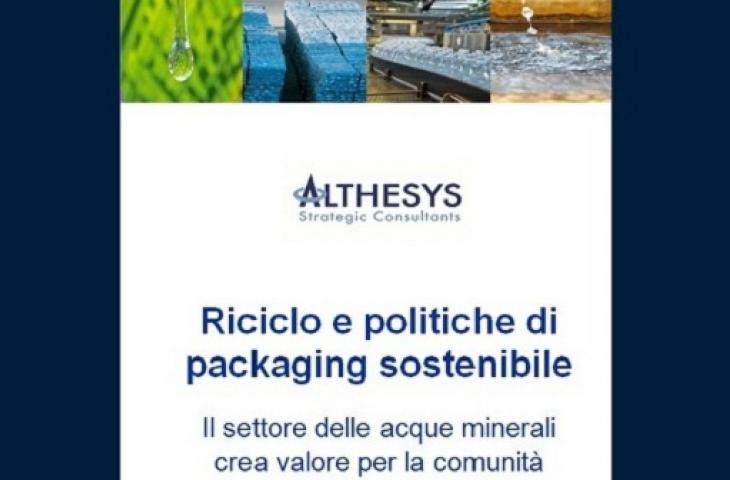MILAN – From 2000 to 2010 the adoption of policies to recycle plastic packaging has brought an overall benefit to Italy – to the economy, society and the environment – estimated at €2.7 billion; €1.2 billion for the PET Mineral Water industry and €232 million for the Sanpellegrino Group alone. These are the results of a wider study commissioned by Sanpellegrino from the Istituto Althesys.
HEADLINE FIGURES – In the past 11 years (2000-2010), collecting and recycling plastic packaging has entailed costs (in real terms or missed benefit) of €1.9 billion and incremental benefits of €4.6 billion; the costs are for the greater outlay needed to organise sorting waste schemes, and the benefits are thanks to reduced dependency on raw materials, the fact that less waste is produced and therefore disposed of – 117 landfill sites have been rendered unnecessary – and the resultant economic activities. Collecting and recycling plastic packaging has avoided
8.2 million tonnes of CO2 emissions; saved €418.5 million in disposal costs and salvaged material worth approximately €493.7 million. In addition, collecting and recycling packaging has a significant effect on the country’s economy and industry: the launch of the Conai and Corepla system led to the creation of special facilities (Sorting and Transfer Centres) and boosted the growth of recycling companies, generating spin-off activities and jobs.
THE SANPELLEGRINO GROUP – For 11 years the Group collected and recycled bottles produced by the company, this activity helped benefit the country to the tune of €232 million in total. The main areas where it contributed were the environment and spin-off activities. From an environmental point of view, recycling the Group’s PET bottles avoided emitting around 559,000 tonnes of CO2. In total 204,863 tonnes of packaging were recycled, which is equivalent to preventing eight landfills. Sorting waste made it possible to reclaim secondary raw materials for recycling estimated to be worth over €35 million. The prevention policies also made a significant contribution, by reducing the weight of packaging. In terms of spin-off activities, this contribution is down to both the collection of PET bottles and the subsequent sorting and transfer for recycling phases. Overall, spin-off industries,
new economic activities and jobs worth €152.8 million net of costs have been created.











